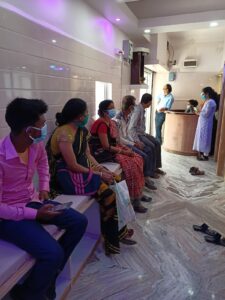Stem Cells transplantation in a Patient’s Brain with Parkinson’s Disease – Clinical Trial in Japan

The world’s first clinical trial using induced pluripotent stem cells (iPSC) on Parkinson’s disease has been initiated in Japan during early 2018. Recently, a team of researchers led by Professor Jun Takahashi at Center for iPS Cell Research and Application (CiRA), Kyoto University, transplanted dopaminergic progenitors, derived from iPSC from a donor, in the brain of a patient of Parkinson ’s disease. For assessing the safety and efficacy, they are monitoring the patient following transplantation of the stem cells. It is an exciting idea to use human induced pluripotent stem cells (hiPSC) to make dopamine neurons or their precursors, which would then be transplanted into the brains of patients. In previous research, dopamine precursor cells have been shown to improve motor symptoms of Parkinson’s disease in monkeys.
Are you connected with a patient who is suffering from Parkinson’s disease? What is Parkinson’s disease? It is a neurodegenerative disease due to the significant loss of a type of brain cells, dopaminergic neurons. Dopaminergic neurons, present at substantia nigra of our brain, synthesize the neurotransmitter dopamine that carries signals between brain cells. Currently, more than 10 million people worldwide are living with PD. More than 5 million people in India and about 1 million Americans live with PD. Several motor symptoms (e.g bradykinesia, rigidity and tremor) are the hallmarks of this disease.
There is no cure for this disease yet but current medication can help to reduce some symptoms in early few years of disease onset. The patient management with these motor symptoms of PD is variable for individuals. With advances in the understanding of the etiology and molecular pathophysiology of PD, a variety of pharmacologic therapies have been developed, aiming to replace lost dopamine to alleviate motor symptoms. The most widely used type of medication is the dopamine precursor called L-3, 4-dihydroxyphenylalanine (levodopa, L-dopa). Levodopa helps to alleviate the tremors and muscle stiffness that come with the disease. Other medications have also been used to treat Parkinsonian symptoms as alternative or complementary medications, such as DA agonists, monoamine oxidase (MAO) inhibitors cathecol-O-methyltransferase (COMT) inhibitors, 5-HT1A agonist sarotizan, adenosine A2A antagonists, anticholinergics, amantadine and opioids. If this trial becomes successful, it may have impact
Quiz on Parkinson’s disease
Loss of ................neuron causes Parkinson's disease
Dopaminergic neuron located at.........
Parkinson's disease is a ...................
Share your Results:








It has strong potential to contribute our society significantly in healthcare news & media sector. We need your help and cooperation to reach out more people. You may share our postings in social media